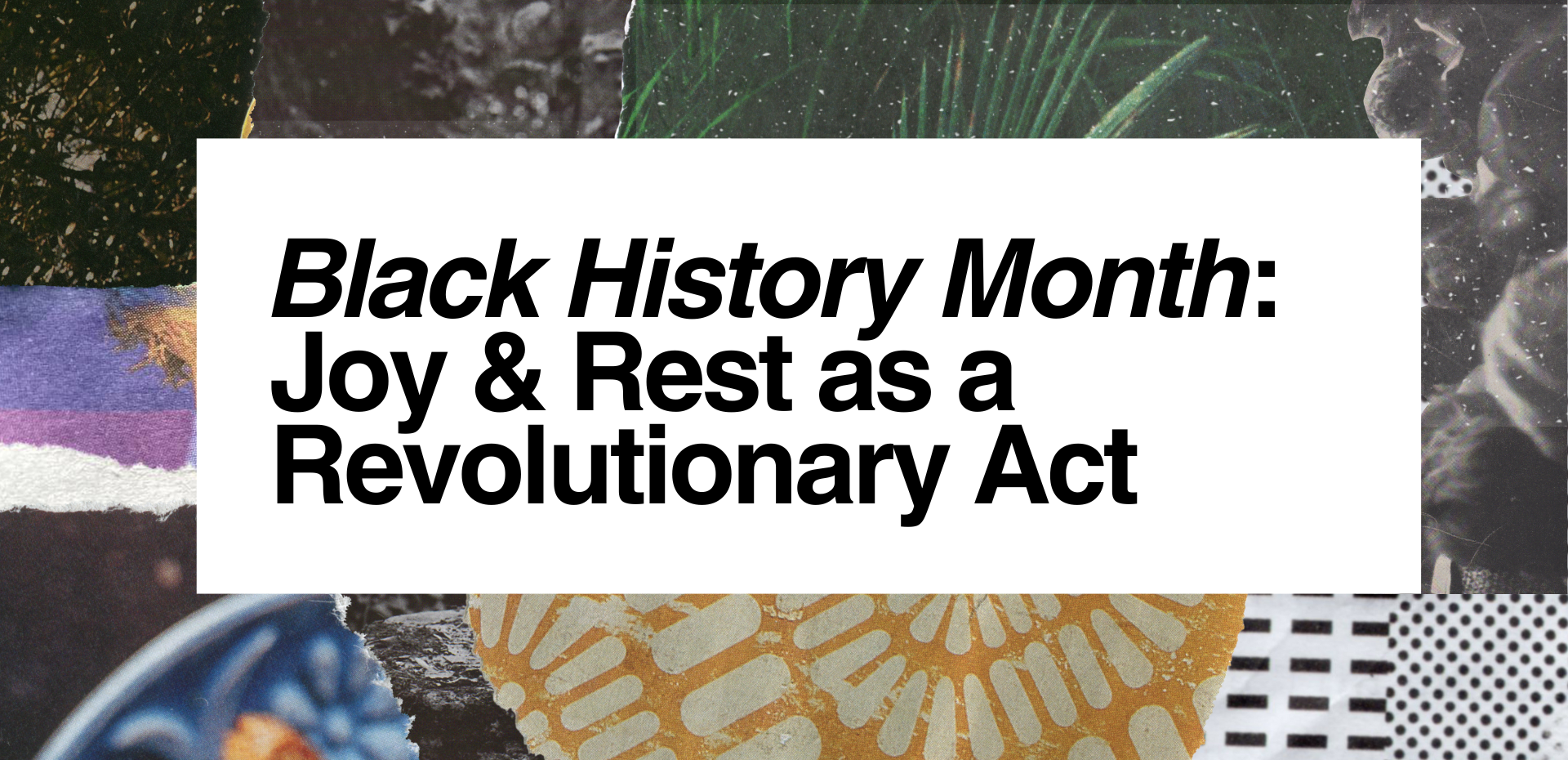Rest as Resistance, Joy as Liberation: Redefining Work and Resilience
February 10, 2025
In an economic system that prioritizes productivity and short-term profit, Black communities have long tapped into joy and rest as sources of liberation and resilience. During Black History Month, B Corp community leaders share how finding moments of joy and rest amid pain helps them nurture creativity and show up for collaborative work.
Entrenched ways of working shaped by years of profit primacy have encouraged a system that maximizes labor and minimizes the human toll behind it.
The role of work and business in U.S. society, and how they relate to equality and humanity, are centered in the theme of Black History Month 2025: African Americans and Labor. The Association for the Study of African American Life and History points to the impact of work and working on the lives of Black people in selecting this year’s theme:
“Indeed, work is at the very center of much of Black history and culture. Be it the traditional agricultural labor of enslaved Africans that fed Low Country colonies, debates among Black educators on the importance of vocational training, self-help strategies and entrepreneurship in Black communities, or organized labor’s role in fighting both economic and social injustice, Black people’s work has been transformational throughout the U.S., Africa, and the Diaspora.”
Joy and rest can be seen as revolutionary in a capitalistic world that often demands relentless labor and resilience. But these important elements of everyday life have historically been a source of resilience, healing, and connection in Black communities — a thread that continues today and is to be nurtured for the future.
As a community finding new ways of working and doing business, Certified B Corporations are seeking to reshape capitalism. In recognition of Black History Month, Black leaders in the B Corp community share how joy and rest have provided them with moments of liberation and resilience, allowing them to better tap into their creativity and show up for work and collaboration. The reflections that follow from Aurora Archer, Tynesia Boyea-Robinson, Rod Johnson, and Pernell Cezar draw from their personal and professional experiences
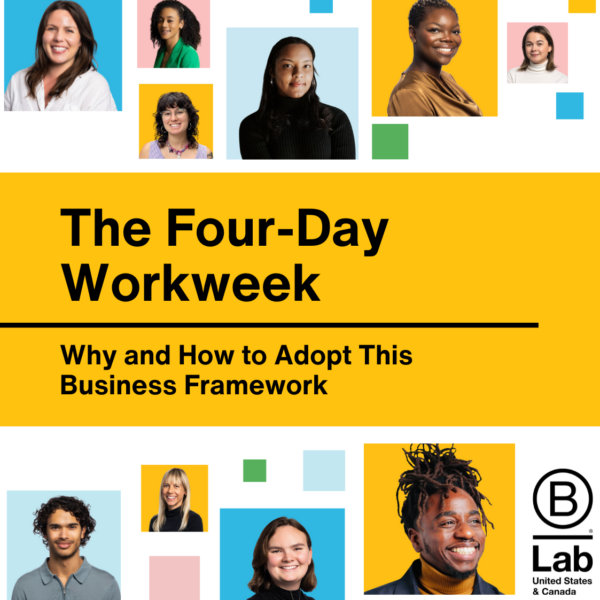
A Business Framework to Better Balance Work and Well-Being
This guide from B Lab U.S. & Canada explores how the four-day workweek is gaining traction as a long-term framework for worker resilience and bottom-line strength. It offers business examples, lessons, and resources to help organizations make the shift.
Rest as Revolution: Reclaiming Joy and Wholeness in a Capitalist System
By Aurora Archer, The Opt-In

Aurora Archer
Capitalism thrives on productivity, extraction, and the relentless pursuit of efficiency. It is a system designed to reward output over well-being, to prioritize labor over humanity, and, especially for Black bodies, to devalue rest as an act of defiance rather than necessity. For too long, I operated under the deeply ingrained belief that my worth was tied to my productivity—that my ability to work, to create, to contribute was what made me valuable. It wasn’t until I began to unlearn this conditioning — this inherited narrative of exhaustion — that I realized rest is not a luxury. It is a radical act of self-preservation, an essential boundary for wholeness, and the foundation of true creativity and innovation.
The Inheritance of Exhaustion
Growing up, I never saw my father take a vacation. He worked tirelessly, holding down multiple jobs, often six days a week, and rarely, if ever, allowing himself to pause. His work ethic was admirable, but it was also a reflection of a system that demanded more from him than it ever intended to give back. This was a common story among Black families: generations of labor without respite, an ingrained sense that rest was indulgent or even dangerous, that survival depended on perpetual motion. This imprinted on me a belief that my value was tied to my ability to produce. That if I wasn’t working, I wasn’t contributing. If I wasn’t contributing, I wasn’t worthy.
This is not a personal flaw but a systemic issue, one deeply rooted in the exploitation of Black labor. From slavery to sharecropping to today’s gig economy and corporate grind culture, the expectation that Black people must work twice as hard to be seen as half as worthy persists. As writer Tricia Hersey, founder of The Nap Ministry, asserts, “Rest is a form of resistance because it disrupts and pushes back against capitalism and white supremacy.”
For my Black ancestors, exhaustion has long been both normalized and expected. Our labor has been extracted for centuries, and capitalism has conditioned us to see rest as laziness rather than liberation. But I have come to see it differently. My father never took a vacation, but I do. And in doing so, I honor him — not by replicating his exhaustion, but by breaking the cycle. By choosing to rest, I am choosing life.
Rest as a Revolutionary Act
Allowing myself to rest has been one of the most radical acts of self-reclamation I have ever undertaken. But it did not happen overnight. Unlearning the belief that my worth is tied solely to my productivity has taken decades — years of therapy, deep self-awareness, and constant vigilance to reset my mindset and nurture a love of self that is not contingent on what I produce. The conditioning runs deep, and even now, I sometimes have to remind myself that rest is not a betrayal of my ambition or purpose, but an essential part of it.
Rest is not simply about sleeping or taking time off — it is about creating boundaries that affirm our inherent worth beyond what we do. It is about recognizing that joy, leisure, and play are not indulgences but essential to our humanity. In the words of bell hooks, “Choosing wellness is an act of political resistance.” By prioritizing our well-being, we are rejecting the idea that we are only as valuable as our labor.
The Creative Power of Rest
Innovation does not come from burnout. Creativity cannot thrive in exhaustion. Some of my most profound ideas and inspirations have emerged not when I was grinding endlessly but when I allowed myself to be still, to listen, to simply exist without expectation. When we rest, we allow our minds to wander, to connect dots we might otherwise miss. Neuroscientists have found that rest activates the brain’s default mode network (DMN), the area responsible for insight and creative problem-solving. In other words, rest fuels innovation.
I have witnessed firsthand how stepping away — pausing, breathing, recalibrating — has opened up space for my best work. The world tells us that we must push harder, do more, be more. But I have found that I am at my most powerful when I honor the rhythm of rest and restoration.
Rest has become an act of self-trust. It is an affirmation that I am enough as I am, without proving my worth through endless output. It is a declaration that my ancestors did not endure so much hardship for me to simply survive; they endured so I could thrive. And thriving requires rest.
A Call to Reclaim Rest
To rest as a Black person in a capitalist society is to challenge the system itself. It is to assert that we are not machines, that we are not disposable, that we are not defined solely by what we can produce. It is a call to rewrite the narrative we inherited and to embrace a new one: that our joy, our wholeness, and our well-being are revolutionary acts in and of themselves.
We deserve to rest. We deserve to dream. We deserve to take up space in ways that are not tied to our labor. We deserve lives filled with creativity, imagination, joy, and ease — not just as a reward for hard work, but because we are inherently worthy of it.
My father never took a vacation. But I do. And in that act, I honor him, I honor myself, and I honor the generations that come after me.

A Resource Library for All Businesses
B Lab U.S. & Canada has a new resource library! Find resources for businesses looking to improve or deepen their impact, for companies certifying or recertifying, and more.
Making Time for Moments of Joy
By Rod Johnson and Pernell Cezar Jr., BLK & Bold
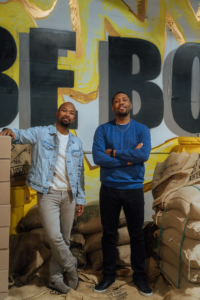
Pernell Cezar Jr. and Rod Johnson
Joy is survival. In our communities, finding joy — whether in music, food, or even the morning cup of coffee — is about reclaiming our time and spirit in a world that too often tries to take that from us. BLK & Bold is built on that foundation. Through BLK & Bold, we want to remind people they deserve a moment for themselves — to pause, reflect, and refuel. Even better, every cup brewed becomes an opportunity to give back — supporting community initiatives and creating pathways for the next generation. Every sip is a nod to the resilience and creativity that has carried Black communities forward.
We built BLK & Bold with the belief that success shouldn’t come at the cost of well-being — ours or anyone else’s. That’s why we’ve committed to ethical sourcing, ensuring that the coffee producers we work with are treated and compensated fairly. It’s why we prioritize flexibility and balance for our team, understanding that rest is just as important as output. The current system glorifies burnout, but we know that sustainable success requires time to rest, think, and create. As a B Corp, we’re intentional about proving that business can be both impactful and human-centered.
The racial wealth gap didn’t happen by accident — it’s the result of generations of systemic barriers, wage inequities, and exclusion from opportunities. We recognize that and operate with the responsibility to be part of the solution. That starts internally, ensuring that our team is paid fairly and has opportunities for growth. But it doesn’t stop there. We reinvest in Black and underserved communities through our For Our Youth initiative, directing 5% of our profits to organizations focused on workforce development, mentorship, and economic mobility. The right to rest comes from financial security, and we’re using our platform to help build that in tangible ways.
Joy and Pain
By Tynesia Boyea-Robinson, CapEQ
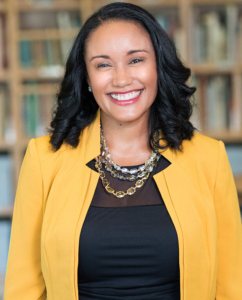
Tynesia Boyea-Robinson
I grew up in the church, and so many of our beloved songs feature the yin and yang of joy and pain. Whether it’s Yolanda Adams’ Still I Rise or Reverend Timothy Wright’s Trouble Don’t Last Always, we were often reminded that “weeping may endure the night, but joy comes in the morning light.” I’ll never forget my pastor telling our congregation the difference between joy and happiness:
“Happiness is fleeting and temporary. But joy is a deep and grounded understanding that no weapon formed against you shall prosper.”
Recently, I co-led a closed-door session for colleagues who had been affected by the slew of Executive Actions against Diversity, Equity, and Inclusion programs and policies. My heart nearly broke as I listened to my colleagues share how the past few chaotic weeks have affected them.
A small business lost a $1 million contract supporting school children because its website contained the word “equity.” A doctor was encouraged to “monitor patients and change their records” if sex at birth did not match their gender. A child of immigrants committed suicide because he was afraid of being deported. The tears and pain were palpable and I could feel the group falling into despair.
That’s when one of the other co-leaders of the session reminded the group of the importance of song for the Civil Rights Movement. I know from sitting on my pew at church that music allows us to connect not only within ourselves but also with the community around us. Through song we have the ability to express our deepest feelings — pain, anger, faith and resolve — and see and hear them reflected around us.
All too often, when people discuss movements, they skip to triumph. Instead, and especially right now when so many are hurting, we cannot forget the unspeakable depths of pain borne by those who move toward justice. The 16th Street Baptist Church bombing resulted in the deaths of four children and many others. This heinous and violent act is credited as a turning point in the Civil Rights Movement. While this tragedy mobilized our country toward justice, we must remember that the families of Denise McNair, 11, Addie Mae Collins, 14, Carole Robertson, 14, and Cynthia Wesley, 14, were mourning the loss of their children. And it was a country grappling with the horror of that loss that unlocked our shared humanity and forced us to change.
As warriors in the current Civil Rights Movement, we must remember that finding joy does not mean hiding pain. It means to honor and embrace it. To feel the injustice and the anger. To cry when it hurts. And to remember that we find joy through the deep and grounded understanding that we shall overcome.
-
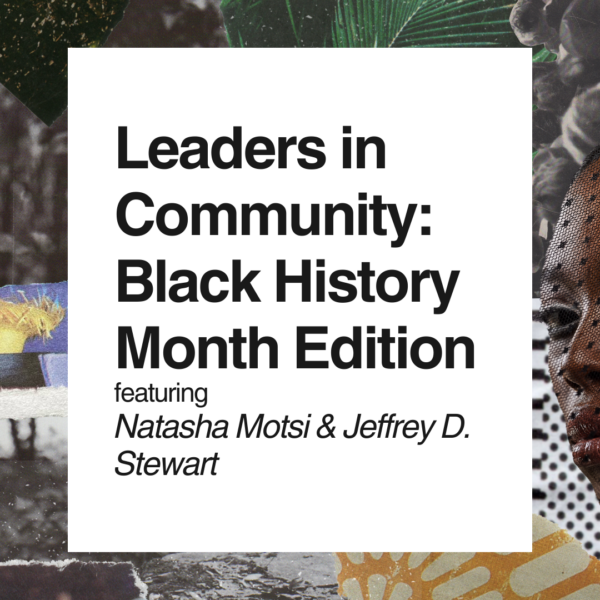
Justice, Equity, Diversity, & Inclusion
Leaders in Community: Finding Joy and Cultivating Community in the B Corp Movement
Read More -
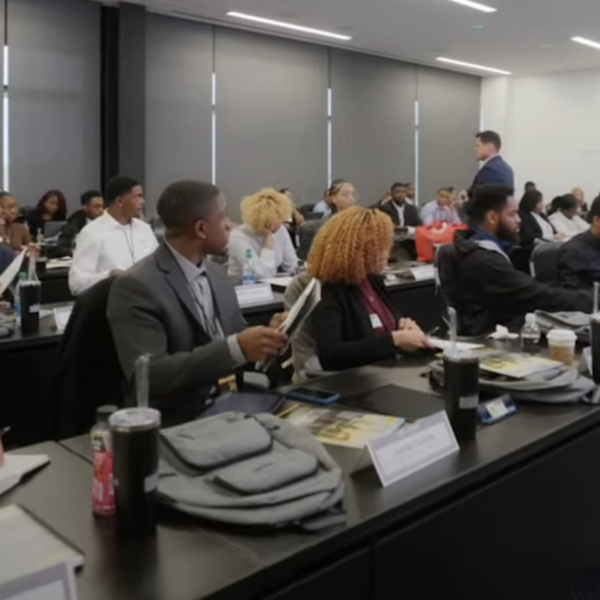
Justice, Equity, Diversity, & Inclusion
Restoration in Action: Four Examples of Racial Equity
Read More -

Justice, Equity, Diversity, & Inclusion
Racial Equity Impact Improvement Program Prompts B Corp Action and Collaboration
Read More -
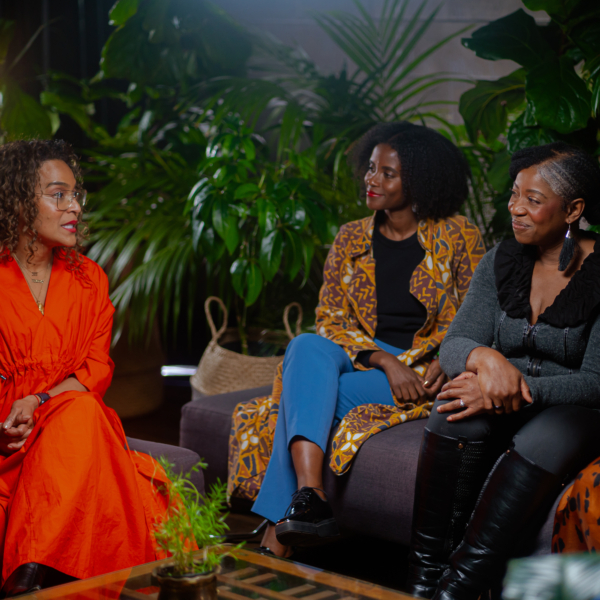
Sign Up for our B The Change Newsletter
Read stories on the B Corp Movement and people using business as a force for good. The B The Change Newsletter is sent weekly.
